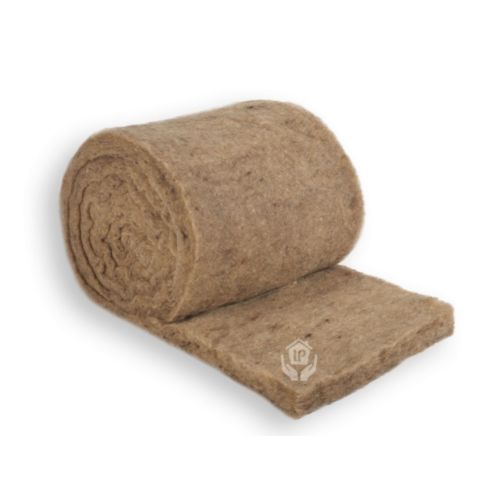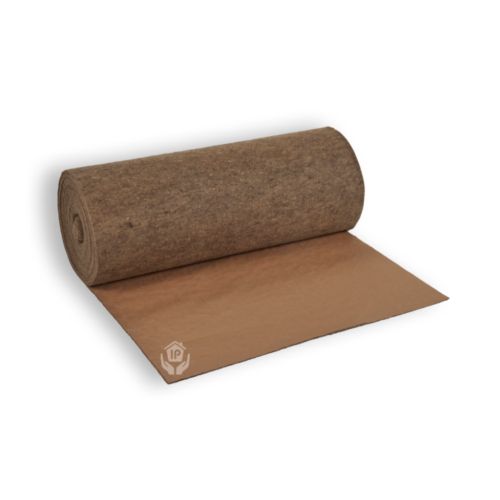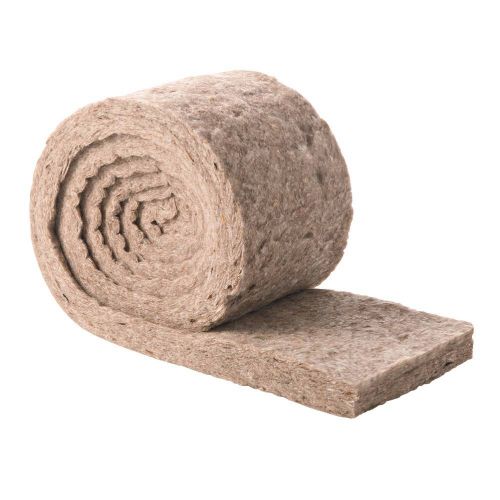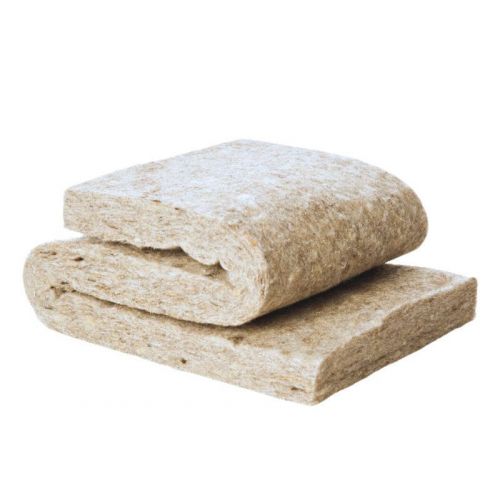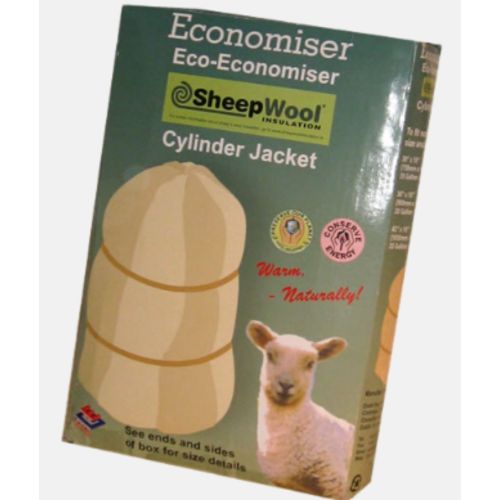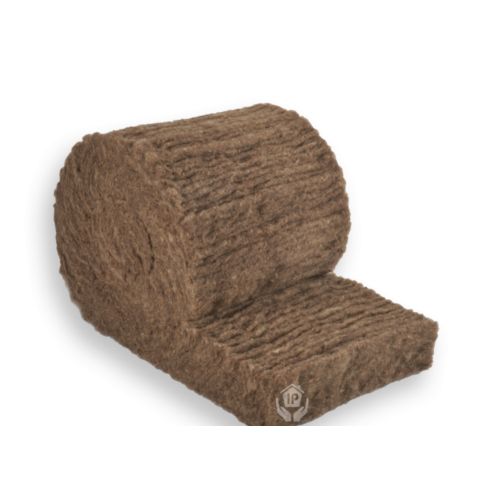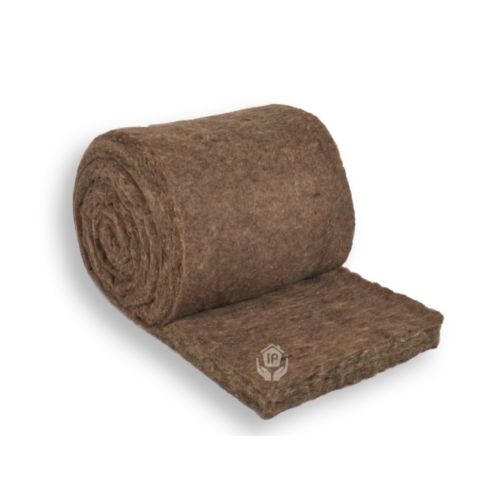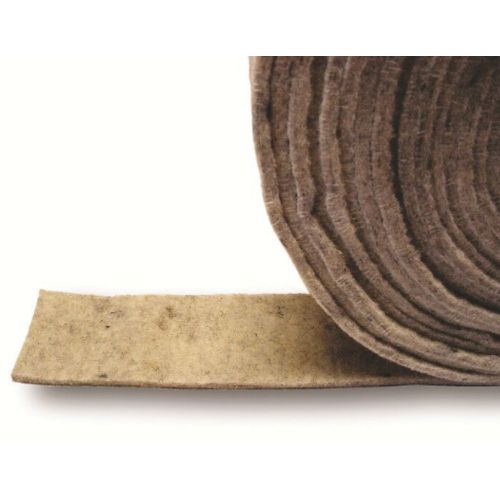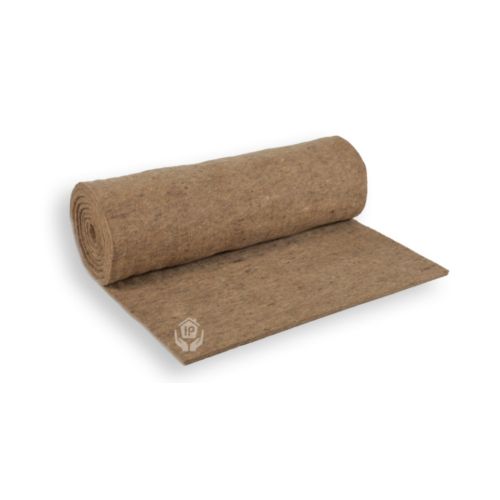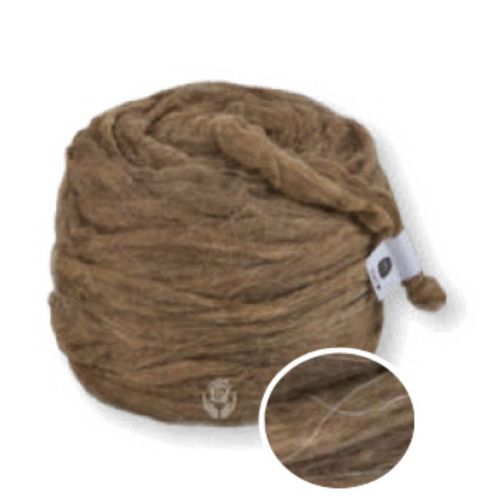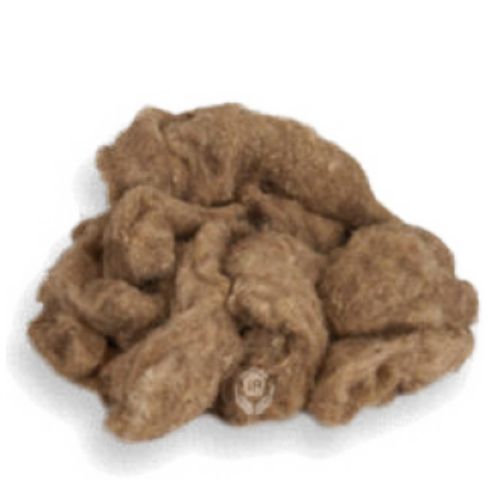Sheep's Wool Insulation
Sheep’s wool is a much healthier, natural way to insulate your home compared to manmade materials. As well as significant thermal and acoustic insulation, sheep’s wool insulation boasts a number of other advantages, such as the ability to activel...
Frequently Asked Questions
What are the Advantages and Disadvantages of Sheep’s Wool Insulation?
Advantages of Sheep’s Wool Insulation
Cleaner Air
Sheep wool has been proven to both absorb and neutralise harmful substances in the air. Their wool contains natural proteins which react with these substances and neutralise them via a process known as Chemisorption. Sheep’s wool insulation can therefore make the air inside your home cleaner and safer, protecting you from dangers including Nitrogen Dioxide, Sulphur Dioxide and Formaldehyde.
Fights Humidity
Insulation becoming too wet or damp is one of the most common ways for its effectiveness to be reduced even cause a need for the insulation to be replaced. Unlike many synthetic materials, sheep’s wool insulation is able to absorb up to a third of its weight in moisture without compromising on effectiveness. This is because sheep and lamb’s wool is hygroscopic, meaning it will absorb excess moisture from the air – perfect in lofts or other areas where you may encounter excess condensation.
Robust Acoustic Insulation
One of sheep’s wool insulation’s main advantages over manmade materials is the level of acoustic or sound insulation it provides. This makes it an excellent option not only for homes but also schools and offices to keep unwanted noise out and boost concentration at work or in the classroom.
Non-Combustible
One of the most amazing things about sheep wool is that it does not burn. It’s one of the only natural fibres that resist flaming or ignition and as soon as the flame is removed sheep’s wool actually self-extinguishes.
Thanks to sheep wool insulation’s naturally high nitrogen content, it won’t burst into flames, rather it will smoulder and singe away. Sheep’s wool insulation would need to be raised to a temperature exceeding 560C before it burns.
Non-Itch
Another great thing about sheep’s wool insulation is that it doesn’t cause any itching or irritation when you work with it. This is in stark contrast to other materials such as glass or rock wool which can pose significant risks if handled without proper protection from gloves, goggles and face masks. Sheep’s wool insulation has none of the irritating qualities of synthetic materials, making it a total breeze to work with – especially good if you’re insulating your loft yourself.
Sustainable
Unlike other materials, sheep’s wool insulation is actually 100% recyclable and sustainable, plus since it’s a naturally-grown product it requires a tiny portion of the energy to produce when compared to synthetic materials. This means that whenever you’d like to remove or replace your sheep wool insulation, there’s no need to worry.
Disadvantages of Sheep’s Wool Insulation
Initial Cost
One of the most obvious drawbacks to buying sheep’s wool insulation is the initial cost. While the production process is far more energy efficient with a much lower carbon footprint, it is a much more expensive process at the moment requiring a larger initial investment.
Lower Thermal Efficiency
While sheep’s wool insulation is a very effective thermal insulator, it doesn’t quite match synthetic insulation materials such as mineral wool or rock wool for thermal conductivity.
Is Sheep’s Wool Environmentally Friendly?
Yes, sheep’s wool is a very environmentally friendly material for insulation when compared to manmade options. The production process is far less energy-intensive, and does not use the same harsh chemicals as in synthetic insulation. This means the carbon footprint is much lower, and no harmful substances will be released into the air during its lifespan. Sheep’s wool insulation can also be recycled safely, posing no risk or harm to the environment at the end of its use.
How Long Does Wool Insulation Last?
Another advantage wool insulation and other natural materials have is their durability and long-lasting quality. The natural woollen fibres are incredibly resilient and will maintain their shape well and therefore their thermal and acoustic insulation throughout their lifespan. Manmade materials on the other hand have more of a tendency to compress over time, meaning your insulation will not be as effective. Wool insulation is also much more resistant to water damage, one of the most common causes of problems.
Can You Compost Sheep’s Wool?
The sheep’s wool insulation that Thermafleece provide hasn’t been treated with any harsh chemicals, meaning it’s easy to recycle and can even be composted. Sheep wool makes a great addition to compost (in moderate amounts) thanks to its high nitrogen content.
Is Sheep’s Wool better insulation for older buildings?
Sheep’s wool insulation is an excellent choice for insulating older structures, or even historic or listed buildings. This is thanks not only to the excellent thermal and acoustic protection sheep wool gives but also its breathability. This will allow the insulation to fight against water damage or mould caused by excess moisture in the air – some of the most common problems homeowners need to check their insulation for regularly.
Another benefit of sheep’s wool insulation is that it can be worked with safely, so for older properties which may not necessarily measure to any standard dimensions like modern properties, you’ll have an easier time cutting and shaping the insulation to fit your needs.
Isn’t Sheep Wool Insulation Expensive?
While the initial cost of sheep wool insulation is generally higher than manmade options such as rock or mineral wool, making an investment in a greener home will pay dividends in the long run. A number of major studies such as the Royal Institution of Chartered Surveyors’ “Green Value” report have shown that eco-friendly properties have a marked increase in market value. So you won’t just be saving on heating and energy bills, but your energy rating will be higher and your home will be worth more when you come to sell.
